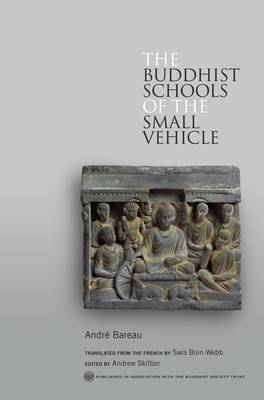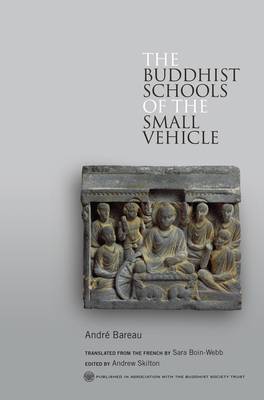
- Retrait gratuit dans votre magasin Club
- 7.000.000 titres dans notre catalogue
- Payer en toute sécurité
- Toujours un magasin près de chez vous
- Retrait gratuit dans votre magasin Club
- 7.000.000 titres dans notre catalogue
- Payer en toute sécurité
- Toujours un magasin près de chez vous
Description
André Bareau (1921-1993) was one of the foremost scholars of Buddhism of his generation. Dissatisfied with piecemeal and contradictory information on early Buddhist schools, he set out to construct a coherent and authoritative overview, which has remained the standard treatment in the field since its appearance in 1955. This book offers a close description and analysis of Bareau's findings on the history, geographical whereabouts, and doctrinal positions of early schools of Buddhism. He systematically presents data from a diverse array of sources: texts in canonical Buddhist languages (Pāli, Sanskrit, Tibetan, and Chinese), inscriptions, and accounts of Chinese pilgrims to India. The result is an encyclopedic resource on thirty-four schools of Indian Buddhism and the approximately five hundred doctrinal theses by which they are differentiated. Bareau's genius was to conceive a plan to draw on an exhaustive range of primary sources preserved in all the major Buddhist languages and to conduct a comprehensive synthetic analysis, thus creating an authoritative picture. He provides several appendices, including summary tables of all doctrinal points discussed.
Several additions have been made to this, the first English-language edition of the work to increase the effectiveness of the original volume: an index of names and places, a supplementary bibliography, and a short essay on Bareau's career and work. Complex diagrams have been redrawn, and the lengthy subject index table in Appendix 1 has been separated into separate tables to make the material more useable. The Buddhist Schools of the Small Vehicle will be used by students and scholars as a primary resource and starting point for any discussion on the history and doctrines of early Buddhism and Buddhist schools. This seminal work is translated by Sara Boin-Webb, who across a career of four decades translated into English some of the most important French-language works of Buddhist scholarship.Spécifications
Parties prenantes
- Auteur(s) :
- Editeur:
Contenu
- Nombre de pages :
- 492
- Langue:
- Anglais
Caractéristiques
- EAN:
- 9780824835668
- Date de parution :
- 31-07-13
- Format:
- Livre relié
- Format numérique:
- Genaaid
- Dimensions :
- 157 mm x 239 mm
- Poids :
- 816 g







